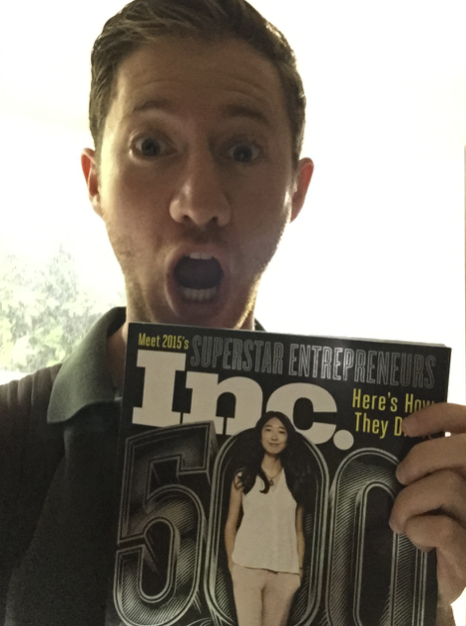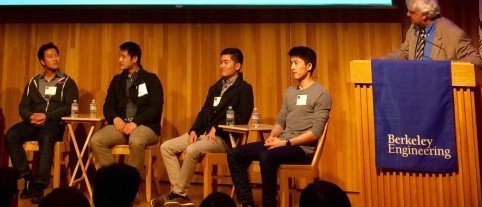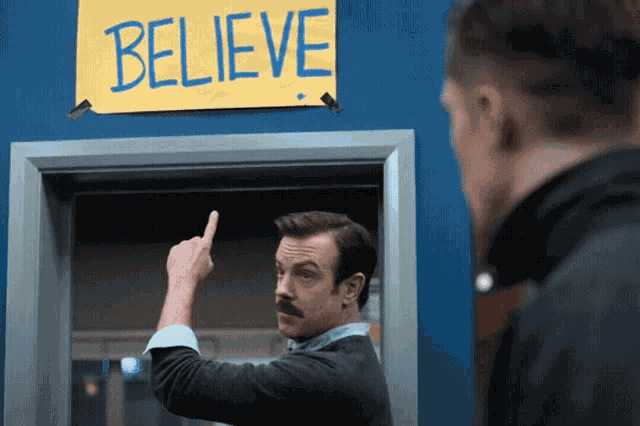BELIEVE
This image was generated using AI. These helmets are not sanctioned for real game play.
It’s big game week, and we’ve got the axe.
It’s big game week, meaning, it’s easy to get me going.
Thankfully Cal alum @pronounced_kyle poked this bear, noting the following on Twitter/X:
“There are two ways to teach future startup founders: the Stanford Model and the Berkeley Model. Stanford teaches people that they are destined to change the world. Gets you Sam Altman. And Elizabeth Holmes. Berkeley teaches that startups are pain, which dissuades people. But maybe those people should be dissuaded. Which is best — to cultivate irrational optimism, or to weed people out early?”
Besides the fact that he spelled Stanfurd wrong, it’s a great question. I don’t think the right answer is so black and white, at least for Berkeley.
What’s Missing Here?
The things that were missing at Berkeley, until ~2012 were knowledge and belief that a student or recent grad can build a huge and impactful startup. I’ll talk about belief in this post, saving knowledge, as well as weeding out people for another day.
When I came to campus in the fall of 2010, there were few accessible role models to look up to. The Social Network movie had just come out and Zuck wasn’t exactly accessible. So some peers were dropping out to join YC or the Thiel Fellowship to find them elsewhere.
Jessica Mah, Founder/CEO of InDinero, was the first Berkeley student founder and role model I found and looked up to.
Though, she had started her first startup at 13 and graduated from Cal at 19, so I didn’t exactly think my brain was even close to as big and capable as hers.
That said, she paved the wave for me and the next big wave for Berkeley.
My definition of accessible role models is the internal dialogue that happens inside saying "people like me have done this, so maybe I can too".
That knowledge, coupled with a dose of reality that startups are hard, is the sauce.
The Caviar founders (L to R) Richard Din, Shawn Tsao, Jason Wang, & Andy Zhang spoke on campus after they sold to Square.
Their story of their first idea failing, pivoting to Caviar with pennies left in the bank, and rising to become a household name started to make the journey more accessible.
Do You Believe?
Historically, most of the Berkeley greats have built up the confidence and belief to go big 10+ years postgrad.
What changed for Berkeley was an entrepreneurial renaissance over the last decade that was mostly driven by grassroots undergrads (representing the majority of Berkeley people on campus), our student clubs, and a few classes on campus taught by faculty who have built startups.
During that era, we fought like hell to enable the brave visionaries, a new wave of young Berkeley founders, to win at all costs. Suddenly, those role models existed.
Nikita Bier, Founder/CEO of tbh (acq. by Facebook) and Gas (acq. by Discord)
tbh was The House Fund’s first investment, though most people don’t know it was originally an app called Five (the first of 10 apps that failed before Nikita hit it big).
Here’s Nikita recruiting Berkeley talent at Startup Fair on campus.
The dude is a genius, and he also showed us that maybe “someone like me” can do this if I’m willing to grit it out and drink coffee in the shower.
Of course, there were other powerful forces at play for Berkeley, such as the founding of Databricks on campus, and an incredible bull run, that deserve credit here.
Though today we celebrate the the brave young founders who BELIEVE!
And on Saturday, we’ll celebrate our three-peat. Go Bears!
-Fiance






